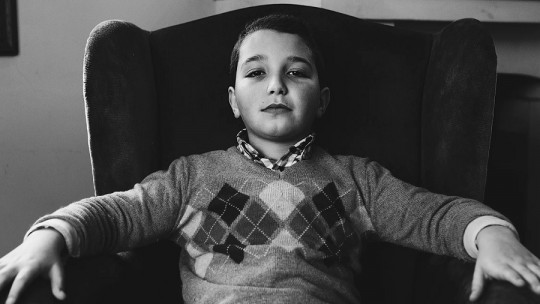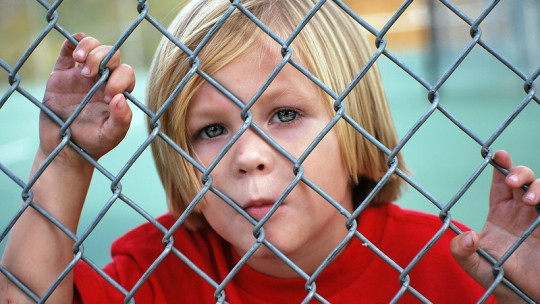
“How this son hurts me”. This is what a mother told me during therapy, in relation to what she was experiencing regarding her son’s adolescence. And this is not an isolated case, we frequently hear the complaint of parents who are sometimes surprised, sometimes disappointed and in most cases without knowing how to act in front of those who were previously their children and now are silent, rebellious, angry, questioning young people, who challenge us, and sometimes even see us as the enemy
Adolescence is a complicated stage and as parents it is normal that we can feel a little overwhelmed. Although we have read about the subject, and despite doing our best to inform ourselves, when the time comes when our child is a teenager we can suffer anxiety when having to face this new situation.
Rebellious Teenagers: A Guide for Parents in Trouble
As a result of the workshops that I have given to parents, I have been able to collect some concepts that I hope will be useful to you. The focus is on what we can do, what is in our hands, not on complaining about their attitudes and trying to modify them, which only brings frustration, since no one can change others overnight.
On the other hand, if I transform my attitudes and become more aware, I am taking the first step. I clarify that this does not mean abandoning the limits and consequences that are necessary and would be the subject of another reflection.
Six tips to improve communication with teenage children
To try to provide useful tools to parents who have problems living with their adolescent child, I propose a series of points that will allow us to lay the foundations for better communication and interaction with them
1. I separate my personal history from yours
As parents, we must be able to separate our personal history from that of our adolescent, separating what is ours from what is his, thus avoiding making you carry a backpack of added pressure It is vital that we understand him as he is and that we take responsibility for our own lives, and let him walk his path. As parents we have to try to facilitate the adolescent son developing his life independently and living his own experiences. This will make him learn on his own and adapt better to the social environment. It is not necessary, therefore, that as parents we add anxiety or fears to our children.
2. I avoid comparing it with others
Another essential point. Our adolescent son has the right to follow his path in life according to his preferences and his own decisions, and the parents we must support and respect him so that he is able to successfully address his own experiences Putting labels on your personal preferences or comparing yourself to other people not only does not encourage you to improve, but it can also put a heavy burden on your self-concept.
We must be able to make a constant effort to respect their way of being, even in the event that as parents we think that their attitude is not the most appropriate. Of course, this implies not wanting our child to look like someone else, constantly comparing him to that high school classmate who gets better grades, or any other reflection that could undermine his self-esteem.
3. I understand your socialization patterns
This is where our ability as parents to be flexible and positive comes in. As long as our child shows respectful and cordial behavior, We do not need to pressure him to socialize based on our standards or those of his immediate environment Parents who are constantly worried about their children “disregarding” them in front of other people simply act based on rigid and conventional socialization parameters.
Showing our son that we care a lot about what he thinks of us (through his attitude, to make matters worse) is a way of conveying to him that we are ashamed of him. Fighting to get him to act the way we want him to act will only cause the relationship to deteriorate and prevent the adolescent from being able to adapt freely to the social environment.
4. Be careful with the idea of “he can achieve what I didn’t do”
Our personal expectations regarding what we want our teenager to be in the future can be very limiting to their personal development. We must understand what our true motivations are regarding our child’s future, and from there decide how demanding we should be with him.
In any case, We must avoid letting the weight of our expectations and desires fall on him Our desires and reflections on what we have achieved in life or what we want to achieve are personal and non-transferable, and it is not correct that we transfer these desires to our children. They must walk their own path and fight for their goals.
5. Everyone must learn from their mistakes
Most parents are not able to recognize that we feel validated and qualified through our children. And, although it is difficult to recognize it, it is the first step to understanding many things and improving our relationship with them. If our son makes a mistake, he must accept the consequences, although that hurts us and we feel the duty to help him. We will always be there to give them the necessary support, but children need us to give them the necessary space to make these mistakes that will allow them to learn, become aware of their responsibilities in life and mature.
6. Emotions should not boycott me
Self-observation must be a fundamental pillar in our reflection on the attitudes and measures we take as parents. We must try to see a little beyond the tangible and identify our emotions and feelings. In this way, when we feel blocked or distressed, We will be able to reflect and detect what we are feeling, and how to manage that emotion
Making self-observation a habit in our daily lives is especially useful in interacting with adolescent children, especially to identify when they are testing us and show an assertive and relaxed attitude, and therefore control the situation. In this way we can act in the way that we think is most precise and necessary, and not from reactivity or anger.
As a closing…
I hope that these little tips and reflections can be useful when it comes to understanding the adolescence of our children as a necessary process for its development at all levels A process, that of adolescence, that we must accompany intelligently.
We must understand that adolescents need to detach themselves from parental protection and begin to be independent to become, in the near future, responsible adults with their own goals in life.








